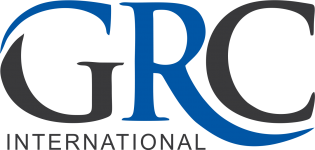
study in hungary
BENEFITS OF STUDYING IN HUNGARY
- Hungary is a member of the European Union and a Schengen state. Higher education is conducted according to the Bologna System enabling students to transfer from one EU University to the other. Diplomas are consequently accepted everywhere in the European Union.
- Higher education has strong traditions with institutions operating for hundreds of years in some cases. The oldest Hungarian university is the University of Pecs operating since 1367 but the City of Debrecen has the longest continuous history of higher education operating continuously since 1538.
- Hungary is a relatively safe country with a low rate of violent crime.
- Fees and living costs are relatively low compared to the rest of Europe.
ABOUT COUNTRY
One of the most beautiful countries of the world, Hungary is located in the central Europe, northwest of Romania. The country is the home of world heritage sites, second largest lake of the world and Europe’s largest natural grassland. The country is under the regime of parliamentary democracy political framework.
Its capital is Budapest. Hungary is a member of EU, NATO, OECD, and V4 is a Schengen state. The official language is Hungarian.
Hungary is ranked 20th globally (out of 195 countries) on International Living’s Quality of Life index (2010) and 6th in an environmental protection index by GW/CAN.
Hungary is a world famous wine growing country, most well known wines come from the Tokay region.
Only seven countries (USA, USSR, UK, France, Italy, China and Germany) have won more Summer Olympic gold medals than Hungary.
Hungarians are known for their prowess at water sports, mainly swimming and water polo.
MAJOR REGIONS/ CITIES
- Northern Hungary
- Northern Great Plain
- Southern Great Plain
- Central Hungary
- Central Transdanubia
- Western Transdanubia
- Southern Transdanubia Budapest
- Debrecen
Major Cities include Budapest, Debrecen, Szeged, Miskolc, Pécs, Gyor, Nyíregyháza, Kecskemét, Székesfehérvár
EDUCATION SYSTEM
Education in Hungary for Hungarian nationals is compulsory between the ages of 6-16 and is free until the first diploma of higher education. Students usually finish their secondary education at the age of 18.
Higher education is divided into Bachelor (3 years) and Master (2 years) level according to the Bologna system.
Grades are given according to ECTS (European Credit Transfer System) enabling students to transfer from one university to another within the European Union.
Some programs like General Medicine (5 years + 1 year internship), Pharmacy and Dentistry (5 years) are not broken up into two parts; students receive their diplomas (Medical Doctor, Doctor of Pharmacy, Doctor of Dental Medicine) at the end of their final year.
The school year consists of two semesters (September-January; February-June) and students are given oral and written exams at the end of each semester.
ADMISSION TIMINGS:
INTAKE:
January & September
Foundation program:
February.
Part-time work during studies
There is no option for part-time work
Work opportunities after studies
Most of the student work possibilities in Hungary require proficiency in the Hungarian language. English and German are widely spoken in Hungary, particularly among the younger population. For many employment sectors, learning to converse in the local language is a definite advantage.
English Requirement
IELTS as proof of English Language proficiency is required from Indian students.
Scholarship/ Bursaries
International students can apply for a place in the Erasmus mobility program the same way as Hungarian students to spend one or two semesters abroad at one of the partner universities.
From the 2nd year of their full degree studies onward, registered full-time students who achieve a 4,50 grade average or higher in each of the previous consecutive 2 semesters may submit an application for a tuition fee reduction. Tuition may be reduced by up to 20% for a maximum of 20% of eligible students in each year. Those excelling in sports are entitled to a sports scholarship.
